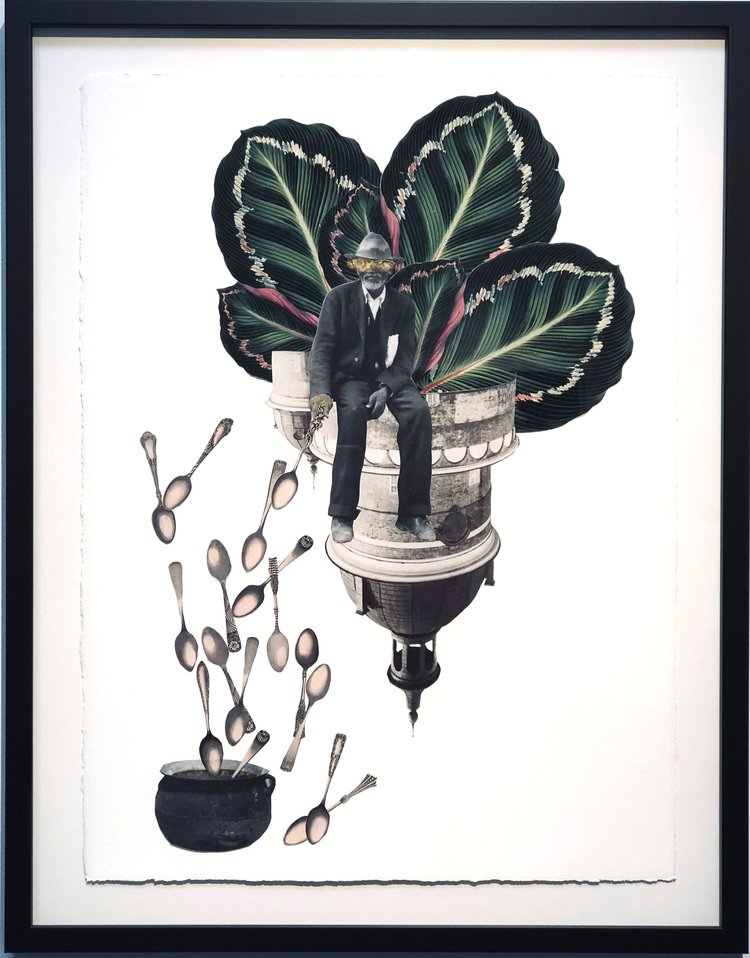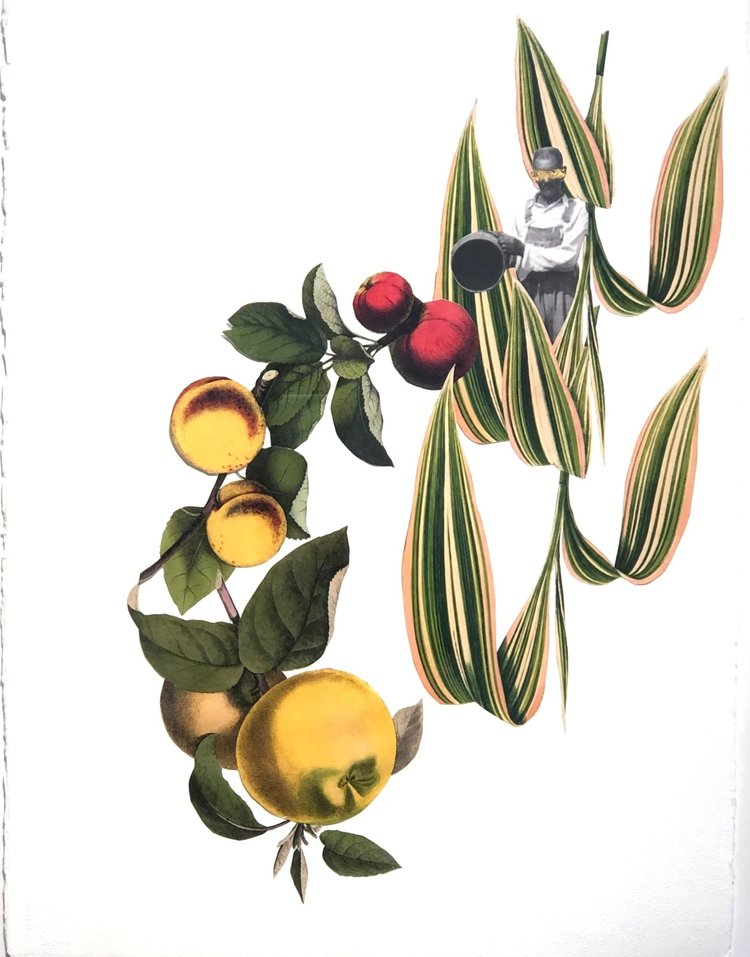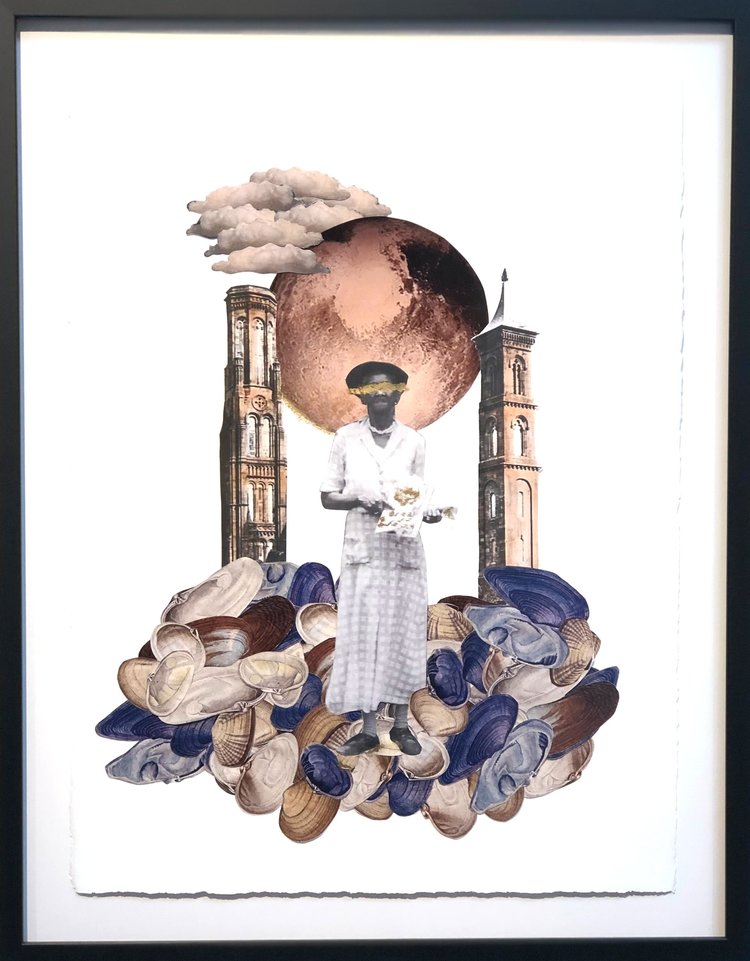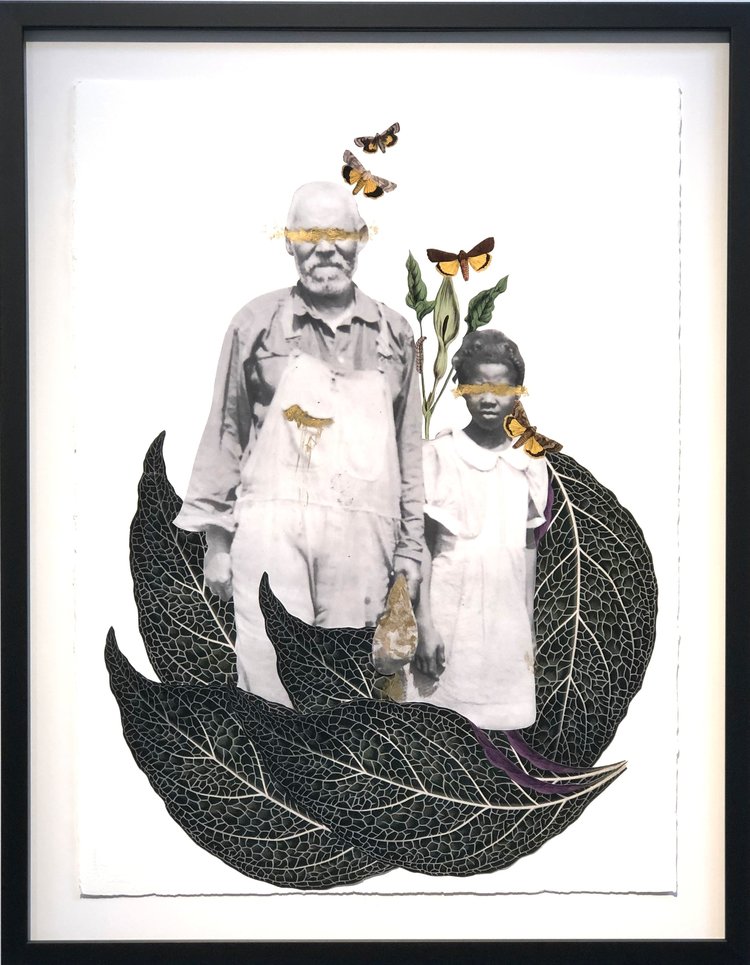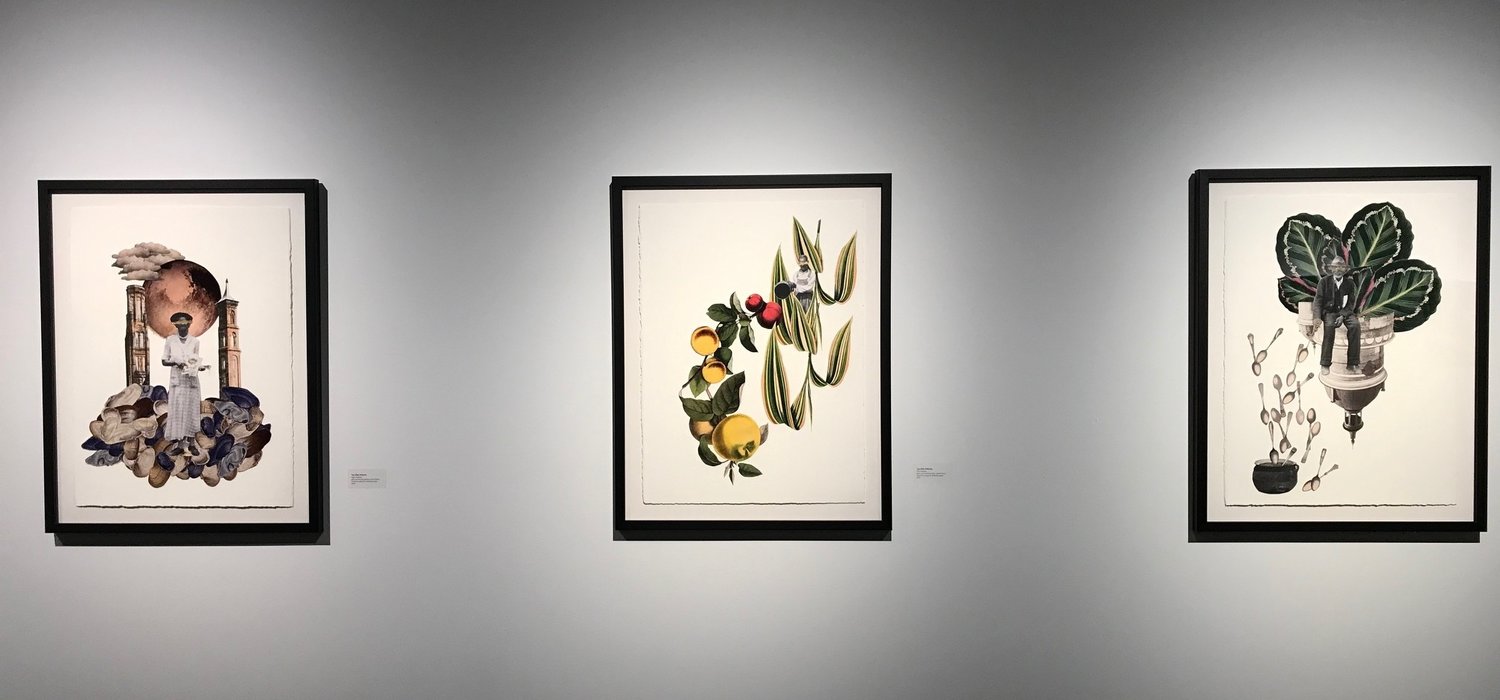Q&A: Tya Anthony
By Hamidah Glasgow | April 25, 2019
Tya Anthony explores themes of Identity seeped in Ritual, Healing and Lore. Sanctuary, but not escapism, fact with a little fiction, her work observes and reimagines inclusive spaces for people of color through photography, collage and reliquary.
Anthony received a Bachelor of Fine Arts Degree, (SUMMA CUM LAUDE) honored as Valedictorian, from Rocky Mountain College of Art + Design. Presently, Anthony lives and works in the city of Denver, producing photography + fine art installations for both commissions and exhibition. Tya is currently a TANK Studios artist, 2018 Redline Residency Artist and serves on the Advisory Board for Leon Gallery, a non-profit gallery and creative space dedicated to mentoring emerging artists across multiple disciplines, along with the Board of Tilt West, a non-profit dedicated to fostering critical dialog in art and culture in Denver. She has shown in numerous exhibitions in the Colorado region including a permanent collection commissioned by the Octopus Initiative and Museum of Contemporary Art, Center for Visual Arts, LEON Gallery, and at RedLine.
Hamidah: Tell me about your trajectory as an artist? How did your journey begin?
Tya: After ten years of being a professional commercial photographer, I was unsatisfied with the direction my tools were taking me in. I was more interested in working and experimenting with new materials while exploring what made my heart beat. I found my work is directly inspired by healing self and others. I thought I wanted to practice as a documentary photographer traveling the world, sharing narratives of culture as I experienced it. Although that is still very probable in my retirement, I realized I had the time and ability to challenge myself, my practice and express the need for social justice of marginalized peoples through other means of art such as painting, performance, and video. I relocated my husband and daughter from Baltimore, MD to CO to attend art school in search of clarity of my identity as an artist and activist.
Hamidah: You are an active artist with studios at both Redline and Tank. What is a day like in your practice?
Tya: A day in my practice is quite complicated, to say the least, but the most fulfilling I’ve ever experienced. As a full time, 40 hours + a week employee of an art school, I feel I live and breathe and reflect my practice every hour of my waking life. I interact daily with student artists, professional artists, curators, exhibition directors, gallery coordinators and world-renowned artists every semester. I am surrounded by galleries, resources, events and arts education every day. Typically after an 8-hour shift, I head off to my residency studio at RedLine for several hours of work whether it is preparing for an upcoming exhibit or experimenting with a material or process I’ve been researching. RedLine also gives me the opportunity to connect with other professional artists and process our practices together. As a commercial photographer for over 15 years, it’s obvious to me at least that I have continued to be quite process driven. Process for me sometimes becomes more important than the idea or project depending on the materials and how I interact with them. I am truly interested in how process and ritual calm the mind, helps to find clarity and inspires new bodies of work. For the next year, I work out of my TANK Studio on the weekends when I can find the time. TANK is where I work on ideas I am not necessarily ready to share with the masses. TANK is where I go for peace and serenity. Where I make decisions and infuse myself into the energy of the other resident artists. TANK is where I plan out commissioned works and meet curators. TANK will be my full-time studio again once the RedLine residency has ended. I am currently exploring textiles juxtaposed with found imagery along with modeling miniature dolls and environments for an upcoming Sanctuary series in progress.
Organic Tarot
I aspire to create a seventy-eight-piece collection of my interpretation of a Black American, Rider Waite tarot card deck. Inspired by 15th-century tarot, divination, and playing cards, “Organic Tarot ” explores the process of reshaping archived documentary style representations of Black ShareCroppers and ex-slaves reimagined as divine inspirational bodies in space. Intended to create a broader complexity of Black identity stripped of tragic TransAtlantic histories, Organic Tarot, investigates archived material as a method of decolonization of the marginalized mind. Natural History illustrations and Classical Western architecture float throughout the series designed to create imaginative narratives loaded symbolism. Organic Tarot, explores ritual as a practice, collage as catharsis and investigates autonomous spaces of exaltation for bodies of color.
Hamidah: Tell me about the importance of the Organic Tarot work?
Tya: Organic Tarot leads into my soul work. Healing and catharsis, self-reflection and moving beyond inflicted narratives and identities.
Hamidah: Please elaborate on what decolonization of the marginalized mind means to you?
Tya: Of course, yes. As a traditionally trained photographer, I am also a natural archivist of the black diaspora and experience. Gathering, documenting and archiving material such as obituaries, birth announcements, military documents, certifications, photographs, and other identifying documents has been a family tradition that my grandmother passed to my mother, my mother to me and I to my two daughters. As my mother is one of the oldest archivists of our family, it was inevitable I would step into that role creating a visual tradition and ritual of documenting our histories for generations to come. By doing so, we spearhead our (black) narratives removing or at least asserting ownership of representations of our identities. This to me is decolonization of the marginalized mind. Not allowing “the majority” of others whether it be anthropologically driven or not to frame our stories or create identities that are only a portion of our loaded existence as a human being who was once enslaved, tortured and left to figure it all out without a manual. It means creating imaginative, inspirational, exalted spaces and movement for people of color who are have been forced to uphold centuries-old identities. It means honoring those who did experience these atrocities but allowing their legacies to become a foundation of liberation and freedom of the mind.
Hamidah: I’m curious if you previsualize the cards or work intuitively as you create them?
Tya: I work intuitively while creating each card. I pull several cards from my research decks for a personal reading to decide which cards will be created. Then I pull symbolism from the reading and move on from there selecting plants, animals, and insects that represent those meanings.
Hamidah: When the Organic Tarot is finished how do you envision sharing it with audiences?
I want to share Organic Tarot as a book with audiences. A means to understanding self. The book will be comprised of stories that explore my experiences as a military brat, teenage mother, child of alcoholic parents and overcoming a chameleon identity.
Hamidah: I’m not familiar with the tarot you referenced, what is the overarching meaning of the original and how does your tarot function differently?
Tya: The overarching use of the tarot is divination and fortune telling. Allowing one's energy to charge the cards to answer questions, give direction or create clarity of one's thoughts.
I grew up playing card games with my parents and their military friends ritually every Friday and Saturday night for most of my childhood. I would rush to sit in my father's lap from a toddler until I was just about too big to fit in his lap helping him win and in turn learning how to play card games like Spades, Gin and 21 at an advanced level. This, in turn, inspired my brother and our friends to hold our own card games throughout our adolescence and into adulthood, Which extended out into how I spent summers with friends and family for years following. My tarot essentially recognizes card playing as a part of my culture, with visual representation of the African diaspora through ancestral imagery.
Hamidah: Thank you for you time and work.
Tya: Thank you.
All images © Tya Anthony


